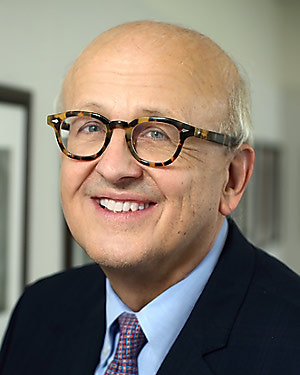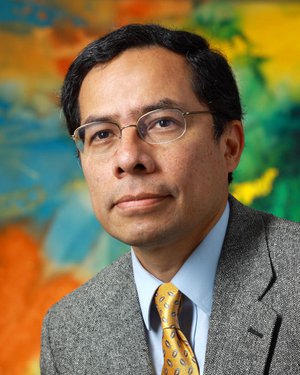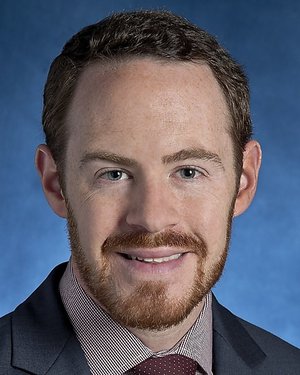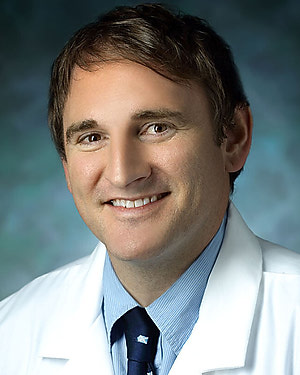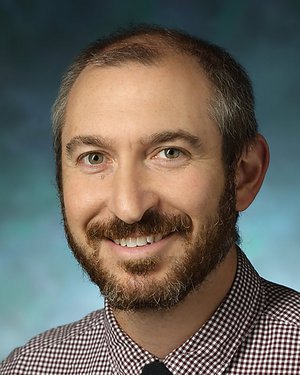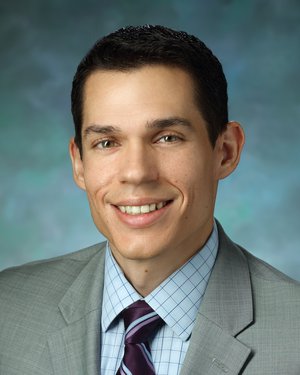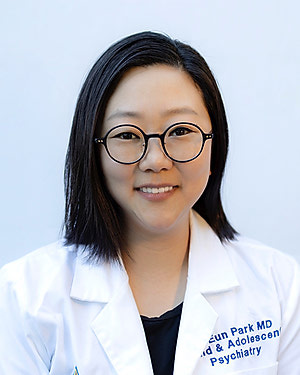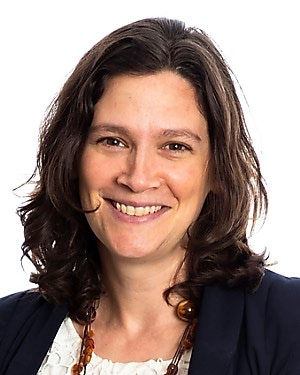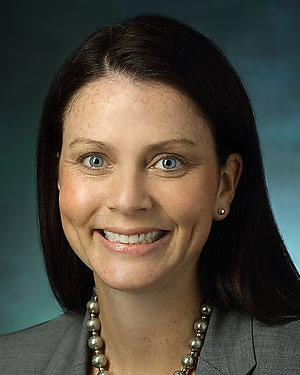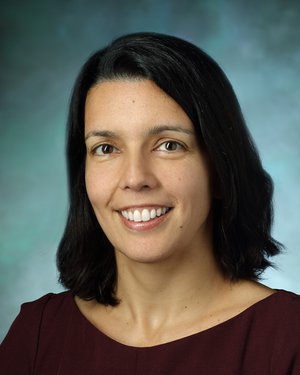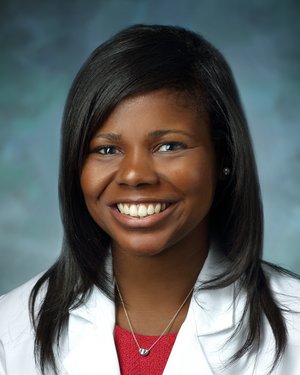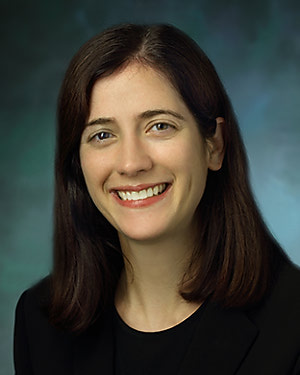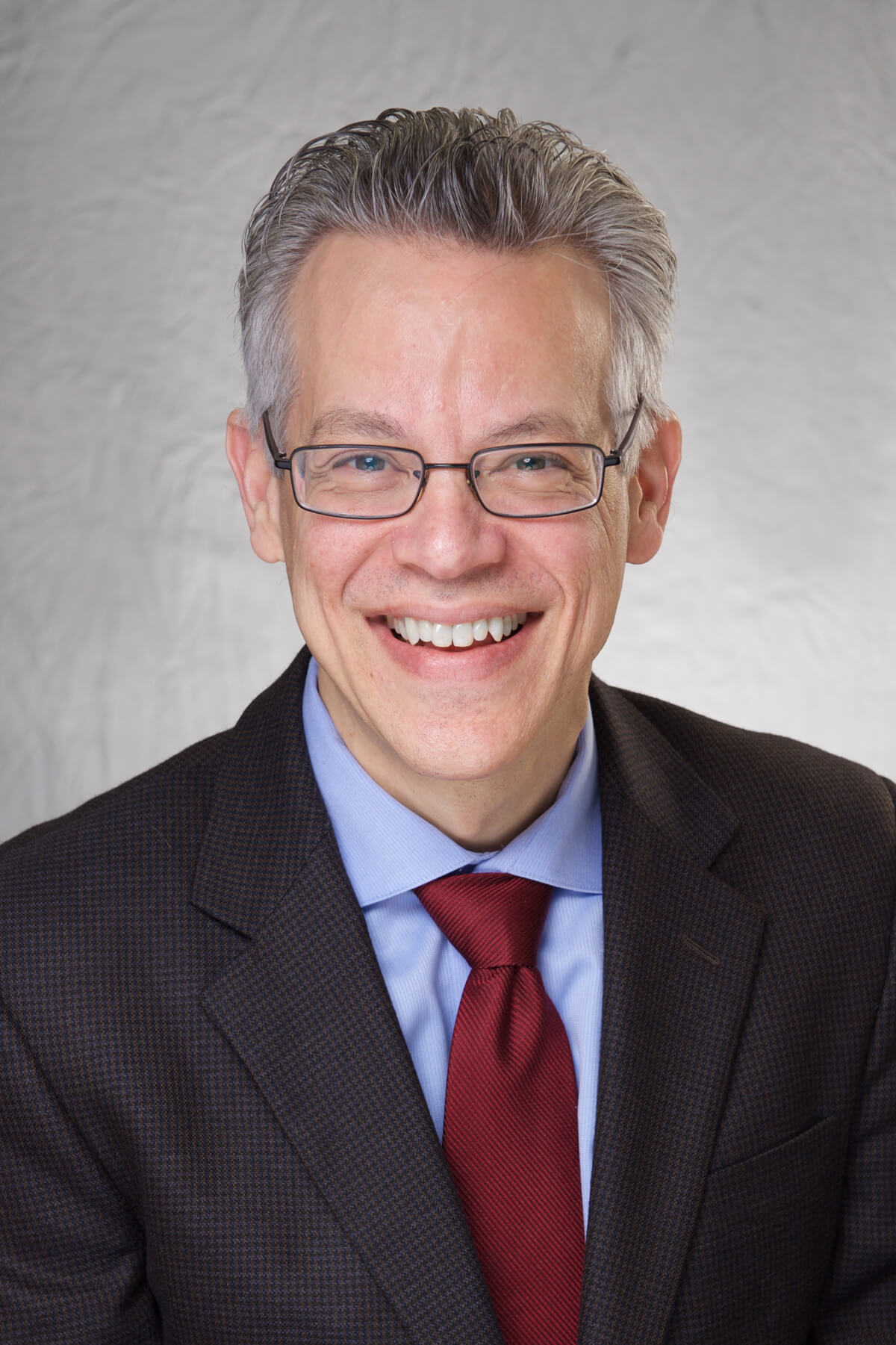Child and Adolescent Fellowship Faculty
There is such a need for child psychiatrists in the United States and throughout the world to respond to the significant public health challenges associated with the onset of emotional and behavioral difficulties in youth.
Elizabeth Reynolds, PhD, associate professor of psychiatry, core teaching faculty
Welcome from Directors
Welcome from Dr. Potash
Welcome to the Department of Psychiatry & Behavioral Sciences at the Johns Hopkins Hospital. For over 100 years, our department has been home to some of the brightest, most innovative medical minds in the world. Our department was established in 1909 with a generous financial gift from Henry Phipps, a Philadelphia steel magnate and major benefactor to Hopkins, in response to the horrifying conditions in American insane asylums at the time. Dr. Adolf Meyer, the Swiss-born pathologist and psychobiologist, became the new department’s director and built the Phipps Clinic, which opened in 1913. In 1930, the renowned Dr. Leo Kanner founded our Division of Child & Adolescent Psychiatry, the first of its kind in the world. These two gifted clinicians and leaders are part of a longstanding Hopkins legacy that includes a faculty of nationally renowned clinicians, teachers, and researchers.
Our department has won many national and international accolades, including being voted the best clinical Department of Psychiatry in America by U.S. News and World Report’s 2020 survey. Our Division of Child & Adolescent Psychiatry is a particular source of pride and is quickly transforming itself into an international powerhouse in the areas of research and clinical care.
It is no overstatement to say that Johns Hopkins is at the forefront of our rapidly developing field. As new methods to study the brain advance, our psychiatrists continue to reshape and redefine the clinical and human face of mental health as we know it. Our programs represent medical expertise practiced within a comprehensive, systematic, and logical Meyerian approach to patient care. We at Hopkins aim to graduate physicians with the knowledge, skills, and compassion to recognize need in the world, and the initiative to bring about change.
In the early 20th century, Hopkins physicians transformed our field and forever changed our understanding of the mind. We are committed to continuing this rich history of service, innovation, and discovery and hope you will join us in furthering our cause.
Sincerely,
James B. Potash, M.D., M.P.H.
Director, Department of Psychiatry and Behavioral Sciences
Johns Hopkins University School of Medicine
Psychiatrist-in-Chief, The Johns Hopkins Hospital
Welcom from Dr. Campo
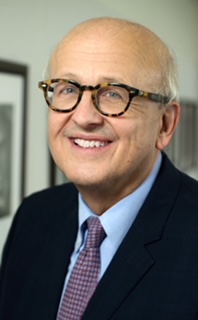
It is my privilege to welcome and introduce you to the Division of Child and Adolescent Psychiatry at the Johns Hopkins School of Medicine and Kennedy Krieger Institute. It was my great privilege to be named Director of this storied division late in 2020, and I remain awed by the program’s tradition and history of many “firsts.”
Our nation’s first division of child and adolescent psychiatry was founded here by Dr. Leo Kanner, who first described childhood autism as we currently know it and authored the first American textbook of child and adolescent psychiatry. Additional firsts include the first longitudinal studies of children with autism, the first application of randomized controlled trials in pediatric psychiatry, and several landmark pediatric psychopharmacology trials. A disproportionate number of America’s most influential child and adolescent psychiatrists have been trained and/or made their home here. Our faculty is proud of our history of training the next generation of leaders in child and adolescent psychiatry, and has played an influential role in shaping training efforts at the national level by emphasizing the importance of developmental neuropsychiatry and neuroscience, integration with pediatrics, community service, and prevention.
Productive collaborations across Johns Hopkins Medicine, the Bloomberg School of Public Health, and the Kennedy Krieger Institute reflect our longstanding commitment to advancing the care of children and adolescents in the vulnerable communities we serve and in general medical settings. We are especially proud of our long history of advocacy targeting the stigma associated with neurodevelopmental and mental disorders, and strive to develop a workforce that reflects the vibrancy and diversity that surrounds us.
What I think you will find most impressive about our training program is the quality, dedication, and character of our faculty, trainees, and staff. This is a group that is not satisfied with “good enough,” yet values and supports one another as we work together to build and sustain a culture of excellence. If you think of your future work in child and adolescent psychiatry as a calling more than a job, if your aspiration is nothing short of excellence, and if you value working with connected and supportive others of like-mind, I very much encourage and welcome your interest. I am personally thrilled to be here, and suspect you will be as well.
Wishing you every success in your efforts,
John V. Campo, MD
Leonard and Helen R. Stulman Professor (PAR) and Director of Child and Adolescent Psychiatry
Director of Child & Adolescent Psychiatry, The Johns Hopkins Hospital
Welcome from Drs. Kronsberg and Zaim
Thank you for your interest in the child & adolescent psychiatry fellowship training program at the Johns Hopkins Hospital. We are delighted that you are considering our program and out community for further training. Our program is built upon the outstanding and diverse array of clinical services, from specialized care for individuals with developmental disabilities, to innovation in integrated care with our partners in pediatrics, to community-based programs treating some of Baltimore’s most vulnerable youth. Johns Hopkins is also home to numerous researchers and innovators in the field of child and adolescent psychiatry and our faculty and institution is deeply committed to educating and training the next leaders in the field.
Our program begins the first year with a thorough grounding in acute care at Johns Hopkins Hospital. Trainees rotate through our inpatient unit and day hospital program, treating children and adolescents with a wide variety of ages and challenges. Our consult-liaison rotation is designed to maximize exposure to children with medical and psychiatric illnesses, as well as a range of pediatric neurological issues. The first year also includes two months of elective rotations to supplement clinical knowledge in the areas of substance abuse and treatment, developmental disorders, school-based psychiatry, forensics, and pediatric neurology. First year also provides a comprehensive outpatient experience, and fellows will participate in a longitudinal outpatient experience which lasts for both years of the fellowship.
The second year of training is focused on outpatient care. Trainees rotate through the Children’s Mental Health Clinic in downtown Baltimore as well as the Developmental Disabilities Clinic at the world-renowned Kennedy Krieger Institute. Experiences in individual and family therapy are also included in this year. In addition, fellows have one elective day per week to pursue their own professional interests in any area within the specialty, taking advantage of the rich array of clinical and academic offerings within the Hopkins system by exploring research opportunities or practicing specialized care.
The training programs takes full advantage of the breadth of expertise at Hopkins. The didactic curriculum has specialized modules on everything from developmental neuropsychiatry, taught by a multidisciplinary team of psychiatrists with specialties in neurology and development and other professions, to a curriculum focused on the social determinants of health, taught by a team of community-focused practitioners.
In addition to preparing our fellows to be excellent clinicians, we also aim to graduate inquisitive lifelong learners who will make profound and positive differences in the lives of the children they treat. We are thrilled with your interest in becoming a part of the Hopkins family and we look forward to meeting you soon.
Sincerely,
Hal Kronsberg, M.D.
Program Director
The Johns Hopkins Hospital The Johns Hopkins Hospital The Johns Hopkins Hospital
Nadia Zaim, M.D.
Associate Program Director
The Johns Hopkins Hospital The Johns Hopkins Hospital The Johns Hopkins Hospital

